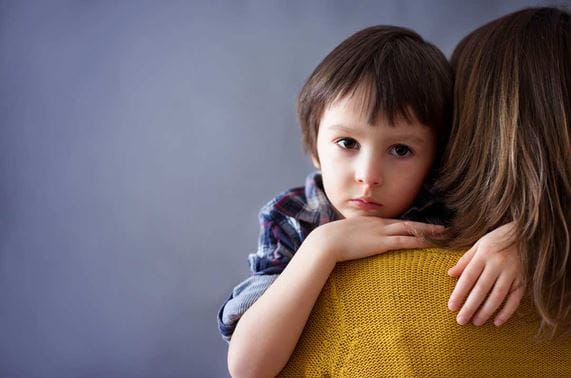11 Signs Your Child May Be Depressed
February 22, 2018
 University Hospitals Rainbow Babies & Children'sExperts in Children's Health
University Hospitals Rainbow Babies & Children'sExperts in Children's Health

When your teen snaps at you for having the gall to say hello to them in the morning and wakes up mad at the world, it can be easy to dismiss this behavior as normal adolescent moodiness.
But what may seem like an attitude problem may actually be a sign of depression, says pediatric psychologist Kimberly Burkhart, PhD.
It can be hard for parents at times to tell the difference between a typical response to everyday stressors and true depression.
If you’ve noticed a consistent change in mood and/or loss of interest lasting for two weeks or more, you should consult a professional, Dr. Burkhart says.
“It’s typical for children to feel angry and sad sometimes, but when someone’s clinically depressed he or she is feeling sad, irritable, lacking interest in enjoyable activities and perhaps even feeling hopeless for most of the day, the majority of the days,” she says.
“In children and adolescents who are depressed, you may notice more irritability and loss of interest rather than just sadness or a depressed mood,” she says. “With depressed children, you may see an externalizing response, such as frequent temper outbursts or aggressive behavior."
Younger Children
Though depression is more common in teenagers, school-aged children can experience it as well, Dr. Burkhart says.
In younger children, you may notice them reacting more emotionally. They may also be moody. For instance, one minute the child is very happy and the next minute, they're irritable or angry.
If you’re not sure how pervasive the problem is, Dr. Burkhart suggests talking to your child’s teachers or coaches.
“They can tell you if they’ve also noticed any changes in behavior or mood,” she says.
Warning Signs of Childhood Depression
If you suspect your child is suffering from depression, Dr. Burkhart says these are 11 warning signs to watch out for:
- Changes in sleeping habits. “Sleeping too little, too much or taking long naps regularly may be warning signs of depression,” she says.
- Not wanting to participate in activities, or not enjoying activities once enjoyed.
- Withdrawing from friends and family.
- Trouble thinking or concentrating. “This may not be ADHD, but rather a sign of depression,” Dr. Burkhart says.
- Weight loss or gain, or changes in appetite. Eating too much and not eating enough can be signs of depression.
- Decline in academic performance.
- Fatigue or loss of energy.
- Self-harm. This can take many forms, including cutting, picking, scratching or even hitting themselves.
- Lacking self-confidence or self-esteem, and feelings of worthlessness. “People with depression often feel like they can't do anything right, are not liked and/or they're not good at anything,” Dr. Burkhart says.
- Feelings of hopelessness. “When we think about someone being depressed, we look to see if they are experiencing negative thoughts about themselves, about others and about the future,” Dr. Burkhart says.
- Recurrent thoughts of death or suicide.
Treatment for Childhood Depression
Childhood depression can happen because of external factors, such as stress, bullying or a traumatic event, Dr. Burkhart says. Or, depression or anxiety may run in your family. If that's the case, stay alert to your child’s moods.
If your child has been diagnosed with depression, many treatment options are available – and they don’t always involve medication, Dr. Burkhart says.
“One of the most effective treatments for dealing with depression in children and adolescents is cognitive behavioral therapy, which looks at the relationship among thoughts, feelings and behavior,” she says.
With cognitive behavioral therapy, mental health professionals work to help the child challenge and change unhelpful thought patterns and behaviors.
“For example, a child may be having negative thoughts that may be true or untrue,” she says. "We work on evaluating those thoughts and helping the individual to think more adaptively or positively and look for errors in their thinking.”
Other techniques to treat childhood depression include exercise and behavioral activation, where mental health professionals work with the person to gradually increase their engagement in positive activities.
If your child continues to exhibit moderate or severe depression, their doctor may recommend they take an antidepressant.
“The only way we can really determine the level of severity is through an evaluation with a mental health professional,” Dr. Burkhart says. “But if your child is expressing suicidal ideation or self-injurious behavior, that’s a good indicator that medication may be beneficial.”
Kimberly Burkhart, PhD is a pediatric psychologist at University Hospitals Rainbow Babies & Children’s Hospital. You can make an appointment with Dr. Burkhart by calling 216-844-7700.


